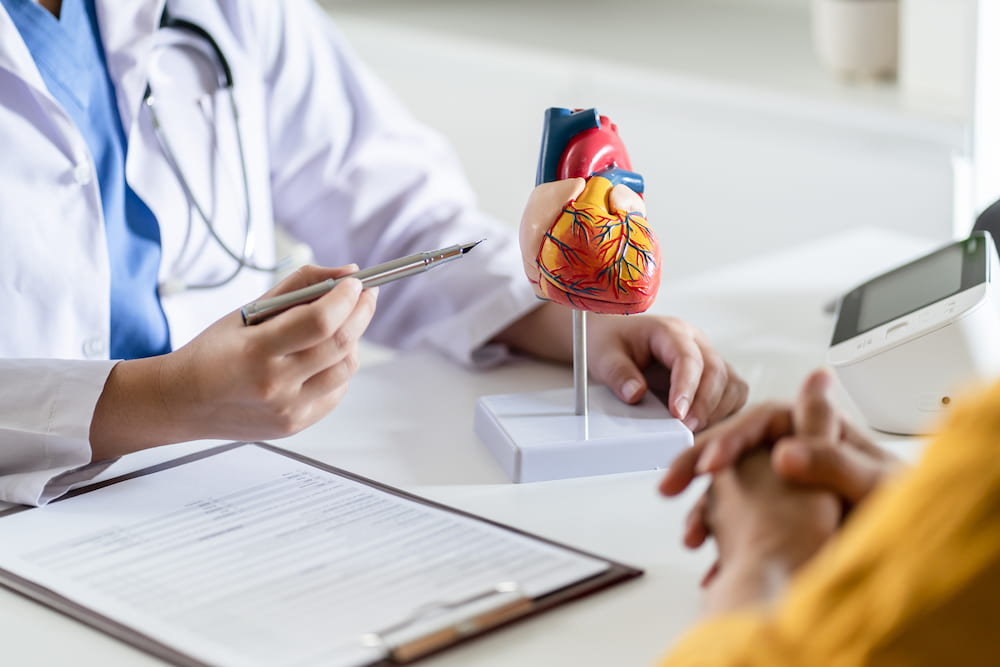Heart disease remains one of the leading causes of death worldwide; but early intervention can significantly improve outcomes. A good way to start caring for your heart is by forming healthy habits and building a lifestyle that supports this goal.
Besides learning how to manage your heart health as you age, knowing the warning signs that indicate a need for immediate heart care and cardiology services is also lifesaving. Read on as this article discusses critical signs to watch out for, signalling it’s time to seek medical help as soon as possible.
Chest Pain or Discomfort
Chest pain is one of the most recognizable signs that you need heart care and cardiology services. This can manifest as a persistent ache, a sharp stab, or a crushing or burning sensation. Chest pain that occurs during physical activity or emotional stress and subsides with rest can be particularly concerning, as it may indicate coronary artery disease.
Should you experience any chest pains or discomfort, don’t hesitate to consult a heart care Chicago specialist for expert advice and treatment if you’re in the area.
Shortness of Breath
Experiencing breathlessness during routine activities that you used to perform without difficulty could be a red flag. This symptom could be an indication of heart failure, where the heart can’t pump blood effectively, or other cardiac issues that require immediate evaluation by a cardiology service.
Palpitations
Feeling like your heart is racing or fluttering irregularly, known as palpitations, can signify arrhythmia. If not addressed promptly by a cardiology specialist, arrhythmias can lead to more severe cardiac conditions.
Excessive Fatigue
Unusual and prolonged fatigue, especially if accompanied by other symptoms like dizziness or shortness of breath, can be a warning sign of heart disease. If simple activities like climbing stairs or walking short distances tire you out, it’s wise to consult a heart care and cardiology services provider.
Swelling in Legs and Feet
Edema, or swelling in your legs and feet, can indicate that your heart is not pumping blood effectively. It could be a symptom of heart failure, making it crucial to seek heart care and cardiology services to prevent further complications.
Dizziness or Syncope
Frequent dizzy spells or fainting episodes (syncope) can suggest arrhythmia or other heart conditions that affect the blood flow to your brain. Seek immediate assessment from a cardiologist to determine the cause and appropriate treatment.
Unexplained Wheezing or Cough
Persistent coughing or wheezing that occurs without an apparent cause, like a respiratory infection, might be a sign of heart failure. Fluid buildup in the lungs can make breathing difficult, and it’s a common symptom that needs urgent heart care and cardiology evaluation.
Pain in Arms or Shoulders
Heart issues can cause referred pain, which might be felt in areas other than the chest, such as the arms, shoulders, back, or jaw. Pain in these areas, mainly if it appears suddenly and during physical exertion, warrants a visit to a cardiology service provider.
Cold Sweat and Nausea
Breaking out in a cold sweat or feeling nauseous are lesser-known yet critical signs of a heart attack. If you experience these symptoms and any discomfort in your chest or upper body, seek heart care and cardiology services immediately.
Irregular heartbeats during or after physical activity could also indicate a serious underlying heart condition. Feel free to contact a cardiology service for a thorough examination.

Tips for Better Heart Health
Now that you’ve learned about the warning signs of cardiovascular problems, it’s the perfect time to learn how to cultivate a lifestyle that minimizes your risk of experiencing such conditions. Here are several practical tips:
Maintain a Healthy Diet
A heart-healthy diet is rich in vegetables, fruits, whole grains, and lean proteins such as fish and poultry. It limits the intake of saturated fats, cholesterol, and trans fats. It also includes sources of omega-3 fatty acids, like salmon and flaxseeds, which are beneficial for the heart.
Exercise Regularly
Regular physical activity can help you maintain a healthy weight, lower blood pressure, and strengthen the heart. Aim for about 150 minutes of moderate-intensity exercise, like brisk walking or cycling, or 75 minutes of vigorous activity, such as running each week.
Monitor Your Blood Pressure
High blood pressure is a significant risk factor for heart disease. Monitor your blood pressure regularly and follow any prescribed treatments or lifestyle changes if it’s high.
Manage Cholesterol Levels
High levels of bad cholesterol (LDL) can lead to the buildup of plaques in your arteries, increasing your risk of heart disease. If necessary, check your cholesterol regularly and manage it with diet, exercise, and medication.
Limit Alcohol Intake and Avoid Smoking
Excessive drinking of alcohol can raise your blood pressure, and smoking is a major risk factor for heart disease. Limiting alcohol intake and avoiding tobacco in all forms can significantly benefit your wellness.
Control Diabetes
If you have diabetes, tight control of your blood sugar levels can help reduce the risk of heart disease. Follow your treatment plan and regularly consult your healthcare provider.
Manage Stress
Chronic stress may contribute to heart disease. Meditation, deep breathing exercises, and yoga can help manage stress.
Get Adequate Sleep
Sleep is essential for your overall well-being. It’s worth noting that the lack of sleep has been linked to a higher risk of heart disease and increased blood pressure. So, aim for seven to nine hours of quality sleep per night.
By integrating these practices into your lifestyle, you can significantly improve your heart’s health and reduce your risk of heart disease.
Wrapping Up
Your heart health is your top priority, and recognizing these signs can empower you to take action. With early detection and treatment through heart care and cardiology services, you can reduce the risk of serious complications. Cardiologists can work with you to understand your symptoms and create a personalized plan to keep your heart healthy.
Did you find this helpful? Check out our other helpful articles on our website.
Read Also
- The Role of Ingredients in Your Skincare: What to Look ForSkincare works best when you understand what goes into the products you use daily. Ingredients form the foundation of every formula and determine how the skin reacts over time. Each cream, cleanser, or serum has its own role, determined by its ingredients. Learning what to look for helps you pick products that help skin and… Read more: The Role of Ingredients in Your Skincare: What to Look For
- Your Guide to Finding a Trusted DentistChoosing the right dentist in Sandgate or your area is crucial for maintaining good oral health and achieving a confident smile. With countless dental practices to choose from, patients may find the task daunting. Data from the American Dental Association indicates that there are over 200,000 practicing dentists in the United States, highlighting the importance… Read more: Your Guide to Finding a Trusted Dentist
- Achieving a Defined, Balanced Facial Contour in SingaporeA well-defined jawline and a gently tapered lower face — commonly referred to as a V-shaped face — is a look many people aspire to. In Singapore’s beauty and aesthetic scene, treatments that help refine facial contours have grown in popularity as more individuals seek subtle, natural enhancements that boost confidence and balance facial features.… Read more: Achieving a Defined, Balanced Facial Contour in Singapore
- The Wellness Blueprint: How Your DNA Holds the AnswerGenetic testing is revolutionizing preventive healthcare by offering insights into individual health risks. By analyzing DNA, these tests provide a personalized health blueprint that can guide lifestyle and medical decisions. This approach, often referred to as DNA wellness testing, helps to optimize health naturally and prevent potential diseases. In recent years, genetic testing has become… Read more: The Wellness Blueprint: How Your DNA Holds the Answer
- Exploring the Benefits of Infusion Therapy in OKC: The Ultimate GuideUnderstanding Infusion Therapy: A Deep Dive into Its Purpose and Process What exactly is Infusion Therapy? Infusion therapy is an advanced medical treatment that delivers medication and nutrients directly into the bloodstream through a vein, typically via an IV (intravenous) line. This method is particularly beneficial for patients who require a concentrated dose of medication,… Read more: Exploring the Benefits of Infusion Therapy in OKC: The Ultimate Guide
- Ketamine-Assisted Therapies: Impacts on Employee WellbeingWorkplace stress is common today. Many employees feel tired, anxious, or burned out. Regular therapy can help, but some people need more support. Ketamine-assisted therapy is showing good results for mental health. A ketamine-assisted therapist guides each session safely. This therapy can improve mood, focus, and energy. Learning more about it can help teams stay… Read more: Ketamine-Assisted Therapies: Impacts on Employee Wellbeing
- The Future of Men’s Health: Why Telehealth Is Here to StayTelehealth isn’t just a pandemic trend that faded into the background. For Australian men, it has become one of the most practical, time-saving, and stress-free ways to manage everyday health — and it’s shaping the future of how we access care. Platforms like DOCTO, an Australian online doctor and specialist telehealth service, are leading the… Read more: The Future of Men’s Health: Why Telehealth Is Here to Stay
- How to Build a Simple, Clean Skincare Routine ?You don’t need a complicated skincare routine. It doesn’t have to be something that requires twenty different products and confusing steps. Your routine works well with just a few high-quality clean ingredients. The beauty industry keeps pushing more products, but your skin actually needs less. You only need a simple approach to get better results… Read more: How to Build a Simple, Clean Skincare Routine ?









